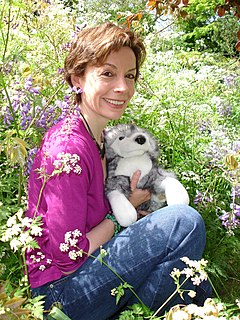Top 61 Quotes & Sayings by Michelle Paver
Explore popular quotes and sayings by a British novelist Michelle Paver.
Last updated on April 15, 2025.
I didn't do it for the money. I know a lot of people say that, but if I'd wanted to be rich, I'd have stayed working as a city lawyer. I gave that up eight years ago and took a massive drop in salary, and I didn't mind because I was doing what I loved. There's plenty of material for the other five books.
Why do so many children love the idea of being snowed in or shipwrecked, of having to survive on one's own? When I was a child, I was no exception. I wanted to hunt with a bow and arrow like the Stone Age people: to skin deer and build my own shelter. And I desperately wanted a wolf. As we lived in London, my options were limited.
I saw myself as a trailblazer in the 1980s as a female lawyer in the City. It was exciting, as women were outnumbered by men five to one. But while I had this sense of trailblazing, in reality, I wasn't pushing boundaries; it was just a personal myth I'd created, as I was doing a job I wasn't enjoying.
I wanted to write a very simple story about a boy, a wolf, a girl, a bear and a forest, so I thought I might set it in the past. I didn't realise that it went back to when I was 10: I used to love the Stone Age when I was a kid and wanted to live in it, and I got rid of my bed and slept on the floor, but I didn't remember it.























